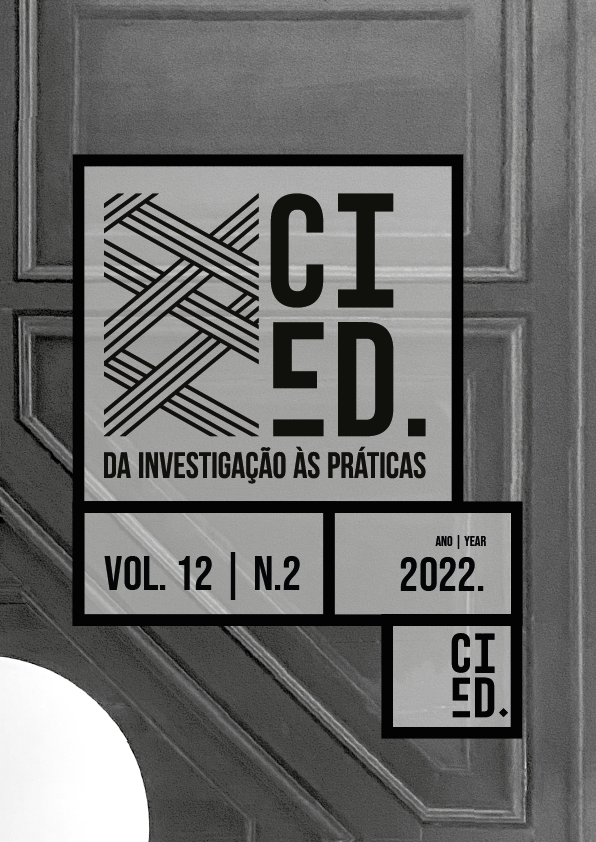From production time to education times. An analysis of the subjugation of the educational to the immediate and the utility
DOI:
https://doi.org/10.25757/invep.v12i2.307Keywords:
Education, Responsibility, Inequalities, NeoliberalismAbstract
In times of technocracy, the issues associated with the Right to Education have been deprecated in favor of an economic-financial determinism, predominant in society hegemonized by neoliberalism. Mirroring this are the educational guidelines from transnational organisations such as the European Commission or the OECD, centralising the priorities of educational action on issues such as entrepreneurship, employability and business logics. The time of production, defined by the regulatory pragmatism that invades and colonizes the human time of the relationship, gains a new centrality in educational discourses and practices. This article aims to define and analyze the effects of what we call imperialism of the useful, underlining the importance of returning to educational practices and discourses a critical, humanizing and socially just sense.
Downloads
References
Amado, J. (2011). Ciências da Educação - Que Estatuto Epistemológico? Revista Portuguesa de Pedagogia, 45-55
Araújo, M. J., & Monteiro, H. (2020). Para uma definição de tempo livre tendo as crianças por medida e referente. O que diz a língua dos pássaros? Sociologia: Revista Da Faculdade de Letras Da Universidade Do Porto, (Direitos das crianças: abordagens críticas a partir das ciências sociais), 53–68. http://ojs.letras.up.pt/index.php/Sociologia/issue/view/670
Arendt, H. (2001). A condição humana (4ª ed.). Relógio de Água
Arendt, H. (2018). As origens do totalitarismo (8ª ed.). Dom Quixote
Bauman, Z. (2000). Modernidade líquida. Zahar Edições
Biesta, G. (2015). What is Education For? On good education, teacher judgement, and educational professionalism. European Journal of Education, 50(1), 75-87
Biesta, G. (2018). O dever de resistir: Sobre escolas, professores e sociedade. Educação, 41(1), 21-29
Boltanski, L., & Chiapello, É. (2007). The new spirit of capitalism. Verso
Fernandes, E. (1990). Psicopedagogia e Psicanálise da Educação: Para um Pedagogia Humanista. Estante Editora
Freire, P. (1994). Pedagogia do Oprimido (23 ed.). Paz e Terra
Garcia, M. (2004). Animação Sociocultural, conflito social e marginalização. In J. Trilla (Coord.), Animação Sociocultural: Teorias, programas e âmbitos (pp. 265-277). Instituto Piaget
Giroux, H. A. (2011). Contra o terror do neoliberalismo. A politica para além da era da ganância. Edições Pedago
Han, B.-C. (2016). O aroma do tempo. Um ensaio filosófico sobre a arte da demora. Relógio D'Água
Harari, Y. N. (2018). 21 lições para o século XXI. Elsinore
Honoré, C. (2006). O movimento slow. Estrela Polar
Jares, X. (2007). Pedagogia da Convivência. Profedições
Kagge, E. (2017). Silêncio na era do ruído. Quetzal
Lima, L. C. (1997). O paradigma da educação contábil. Politicas educativas e perspetivas gerencialistas no ensino superior em Portugal. Revista Brasileira de Educação(4), 43-59
Lima, L. C. (2019). Uma Pedagogia contra o outro? Competitividade e emulação. Educação & Sociedade, 40, 1-18. doi:https://doi.org/10.1590/es0101-73302019218952
Montané, A., & Serdio, A. (2010). Os professores do ensino superior: entre a performatividade da lei e as narrativas autobiográficas. Revista Lusófona de Educação(15), 55-69
Ordine, N. (2018). A utilidade do inútil: Um manifesto. Faktoria K de Livros
Pacheco, J. A. (2001). Contextos e características do neoliberalismo em educação. In Políticas educativas. O neoliberalismo em educação (pp. 9–20). Porto Editora
Pereira, M. B. (2020). Idade científico-técnica e filosofia da responsabilidade. In Obras Completas, V (pp. 143–160). Fundação Calouste Gulbenkian
Piketty, T. (2014). O Capital no século XXI. Temas e Debates
Reis, C. S. (2013). Dos desafios im/possíveis da pós modernidade à reconstrução dos referentes educacionais. In J. Boavida, D. Formosinho, & H. D. (Coords.), Educação: Problemáticas e perspetivas (pp. 119-148). Imprensa da Universidade de Coimbra
Reis, C.S. (2014). Educação e Cultura Mediática: Análise de implicações deseducativas. CEI/Âncora Editora
Sacristán, J. G. (2001). Os novos liberais e os velhos conservadores perante a educação. A ordem neoliberal nas escolas. In J. A. Pacheco (Ed.), Políticas educativas. O neoliberalismo em educação (pp. 47–65). Porto Editora
Sacristán, J. G. (2008). A construção do discurso da diversidade e suas práticas. In J. Paraskeva (Ed.), Educação e poder. Abordagens críticas e pós-estruturais (pp. 69–95). Edições Pedagogo
Santos, B. de S. (2002). Os processos da globalização. In B. de S. Santos (Ed.), Globalização. Fatalidade ou utopia? (pp. 31–99). Afrontamento
União Europeia (2016). Relatório Eurydice. Educação para o empreendedorismo nas escolas europeias. Luxemburgo
União Europeia (2018). Proposta de recomendação do Conselho sobre as competências essenciais para a aprendizagem ao longo da vida. Retrieved from http://eur-lex.europa.eu
Downloads
Published
How to Cite
Issue
Section
License
Copyright (c) 2022 Joana Vaz Ferreira, Hugo Monteiro

This work is licensed under a Creative Commons Attribution 4.0 International License.
Articles published or submitted to Da Investigação às Práticas are licensed according to Creative Commons Attribution License (CC BY 4.0). Authors agree that:
Copyrights of all articles published are retained by authors with first publication copyright granted to the journal.
All articles are under the Creative Commons Attribution License recognizing the authorship of the publication and identifying that first publication took place in this journal.
Authors have the right to free distribute or make available in private or institutional pages the version published by Da Investigação às Práticas: Estudos de Natureza Educacional provided the original proper citation.
The journal only accepts articles not published previously (except in the form of an abstract or as part of academic thesis), that it is not under consideration for publication elsewhere. After published, the article cannot be published again partial or totally without the editorial board consent.





 e-ISSN: 2182-1372
e-ISSN: 2182-1372